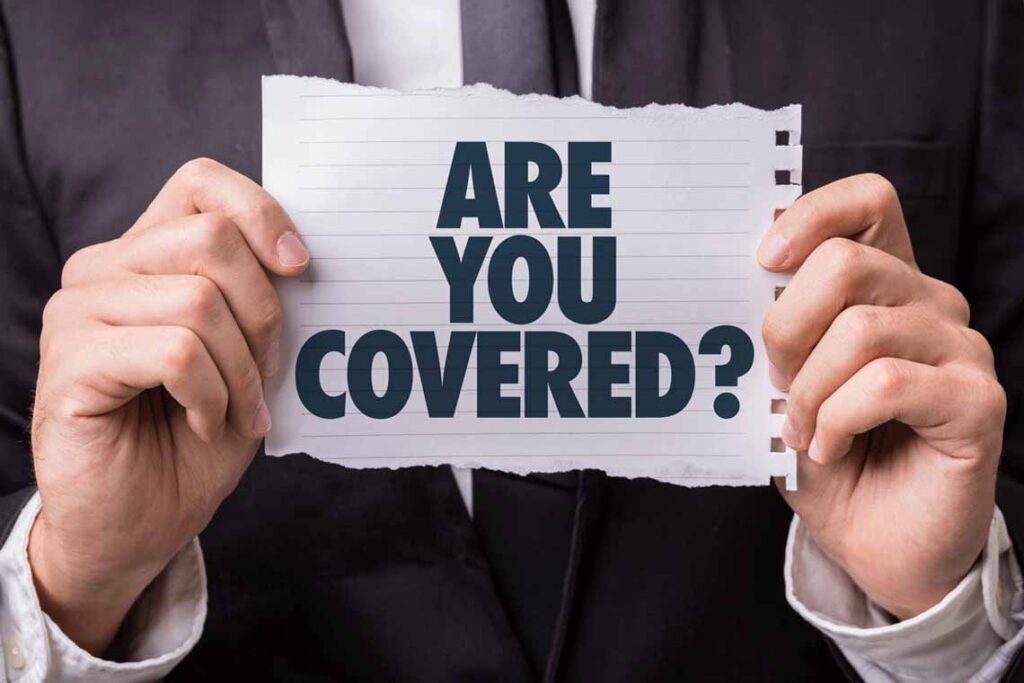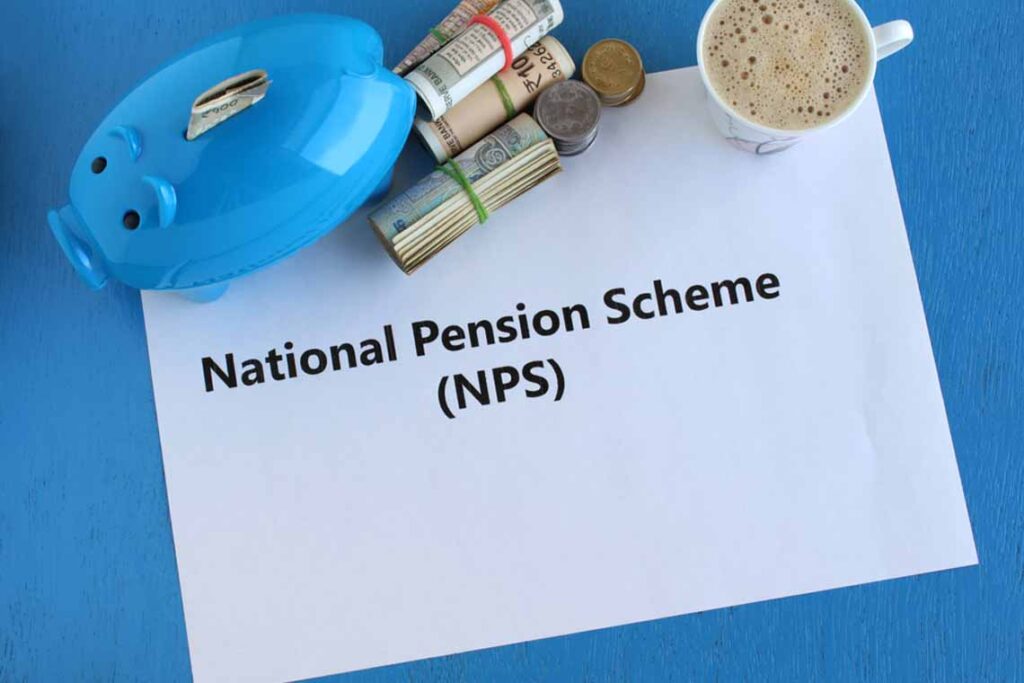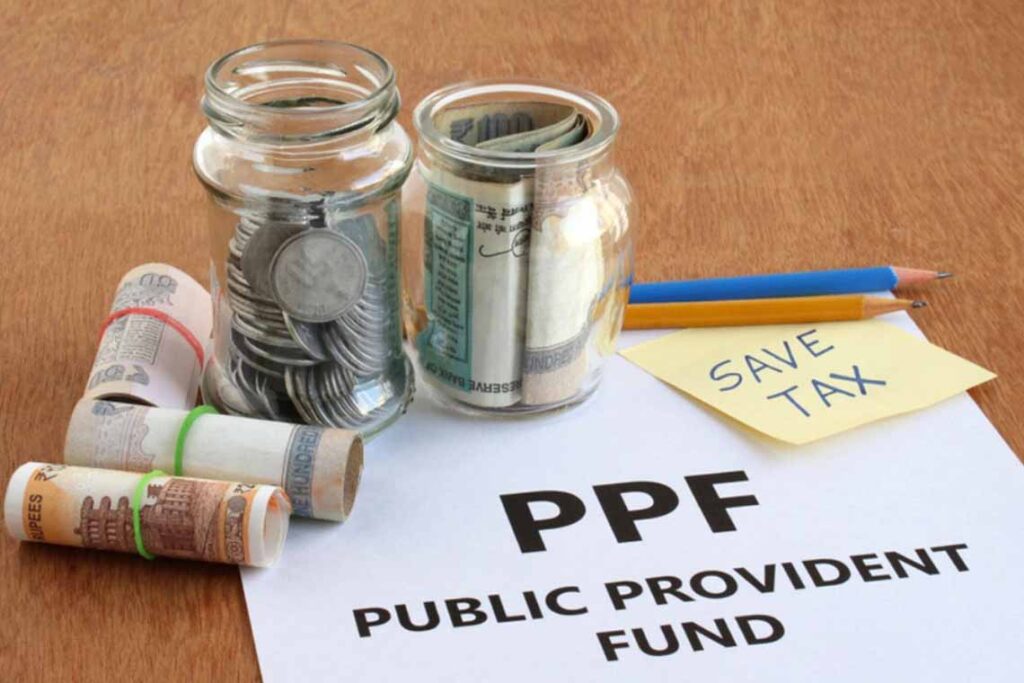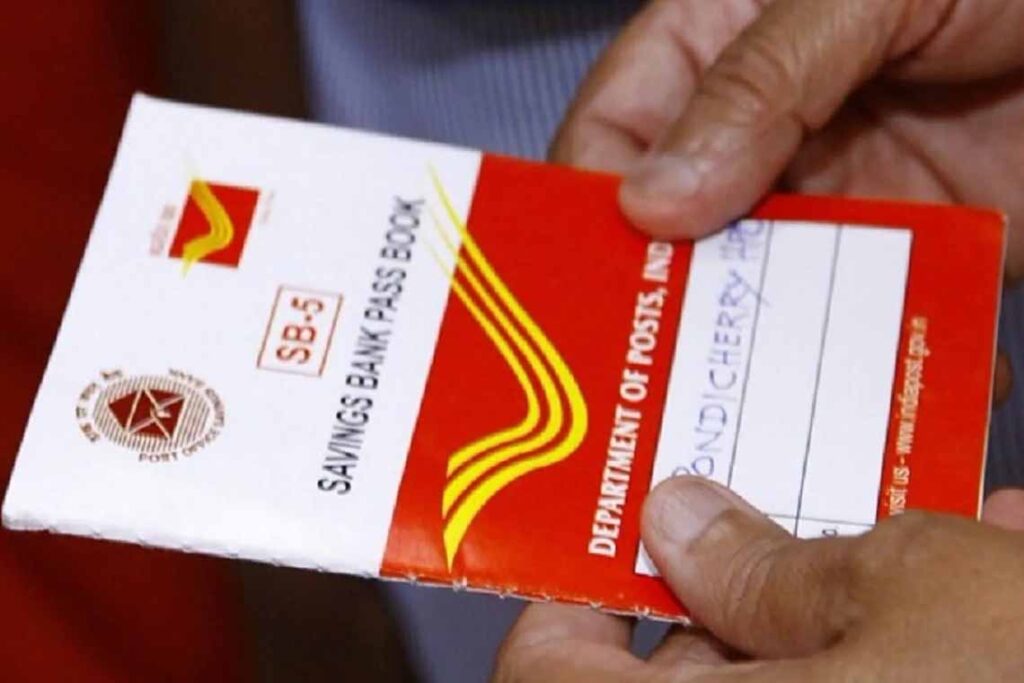1. What is PAN?
PAN stands for Permanent Account Number. PAN is a ten-digit unique alphanumeric number issued by the Income Tax Department. PAN is issued in the form of a laminated plastic card (commonly known as PAN card). Given below is an illustrative PAN:
ALWPG5809L
2. What is the utility of PAN?
PAN enables the department to link all transactions of the assessee with the department. These transactions include tax payments, TDS/TCS credits, returns of income, specified transactions, correspondence and so on. It facilitates easy retrieval of information of assessee and matching of various investments, borrowings and other business activities of assessee.
3. What are the benefits of obtaining a Permanent Account Number [PAN] and PAN Card?
A Permanent Account Number has been made compulsory for every transaction with the Income-tax Department. It is also mandatory for numerous other financial transactions such as opening of bank accounts, in bank account, deposit of cash in bank account, opening of Demat account, transaction of immovable properties, dealing in securities, etc. A PAN card is a valuable means of photo identification accepted by all Government and non-Government institutions in the country.
4. How PAN is formed and how it gets its unique identity?
PAN is a ten-digit unique alphanumeric number issued by the Income Tax Department. The formation of PAN is discussed below :
- Out of the first five characters, the first three characters represent the alphabetic series running from AAA to ZZZ. ( E.g. ALW PG5809L).
- The fourth character of PAN represents the status of the PAN holder ( E.g. ALW P G5809L).
“A” stands for Association of Persons (AOP)
“A” stands for Association of Persons (AoP)
“B” stands for Body of Individuals (BOI)
“C” stands for Company
“E” stands for Limited Liability Partnership
“F” stands for Firm
“G” stands for Government Agency
“H” stands for Hindu Undivided Family (HUF)
“J” stands for Artificial Juridical Person
“L” stands for Local Authority
“P” stands for Individual
“T” stands for Trust
- Fifth character of PAN represents the first character of the PAN holder’s last name/surname in case of an individual. In case of non-individual PAN holders fifth character represents the first character of PAN holder’s name ( E.g. ALWP G 5809L)
- Next four characters are sequential numbers running from 0001 to 9999 ( E.g. ALWPG 5809 L).
- Last character, i.e. , the tenth character is an alphabetic check digit ( E.g. ALWPG5809 L ).
The combination of all the above items gives the PAN its unique identity.
5. Who has to obtain PAN?
PAN is to be obtained by following persons:
- Every person if his total income or the total income of any other person in respect of which he is assessable during the previous year exceeds the maximum amount which is not chargeable to tax.
- A charitable trust who is required to furnish return under Section 139(4A)
- Every person who is carrying on any business or profession whose total sale, turnover, or gross receipts are or is likely to exceed five lakh rupees in any previous year
- Every importer/exporter who is required to obtain Import Export code
- Every person who is entitled to receive any sum/income after deduction of tax at source
- Any person who is liable to pay excise duty or a producer or manufacturer of excisable goods or a registered person of a private warehouse in which excisable goods are stored and an authorized agent of such person
- Persons who issue invoices under Rule 57AE requiring registration under Central Excise Rules, 1944
- A person who is liable to pay the service tax and his agent
- Persons registered under the Central Sales Tax Act or the general sales tax law of the relevant state or union territory
- Every person who intends to enter into specified financial transactions in which quoting of PAN is mandatory
A person not covered in any of the above can voluntarily apply for PAN.
6. What are the specified financial transactions in which quoting of PAN is mandatory?
Following are the transactions in which quoting of PAN is mandatory by every person except the Central Government, the State Governments and the Consular Offices:
- Sale or purchase of a motor vehicle or vehicle other than two wheeled vehicles.
- Opening an account [other than a time-deposit referred at point No. 12 and a Basic Savings Bank Deposit Account] with a banking company or a co-operative bank
- Making an application for issue of a credit or debit card.
- Opening of a demat account with a depository, participant, custodian of securities or any other person with SEBI
- Payment in cash of an amount exceeding Rs. 50,000 to a hotel or restaurant against bill at any one time.
- Payment in cash of an amount exceeding Rs. 50,000 in connection with travel to any foreign country or payment for purchase of any foreign currency at any one time.
- Payment of an amount exceeding Rs. 50,000 to a Mutual Fund for purchase of its units
- Payment of an amount exceeding Rs. 50,000 to a company or an institution for acquiring debentures or bonds issued by it.
- Payment of an amount exceeding Rs. 50,000 to the Reserve Bank of India for acquiring bonds issued by it.
- Deposits of cash exceeding Rs. 50,000 during any one day with a banking company or a co-operative bank.
- Payment in cash for an amount exceeding Rs. 50,000 during any one day for purchase of bank drafts or pay orders or banker’s cheques from a banking company or a co-operative bank.
- A time deposit of amount exceeding Rs. 50,000 or aggregating to more than Rs. 5 lakh during a financial year with –
(i) a banking company or a co-operative bank
(ii) a Post Office;
(iii) a Nidhi referred to in section 406 of the Companies Act, 2013 or
(iv) a non-banking financial company
13. Payment in cash or by way of a bank draft or pay order or banker’s cheque of an amount aggregating to more than Rs. 50,000 in a financial year. for one or more pre-paid payment instruments, as defined in the policy guidelines for issuance and operation of pre-paid payment instruments issued by Reserve Bank of India under section 18 of the Payment and Settlement Systems Act, 2007 to a banking company or a co-operative bank or to any other company or institution.
- Payment of an amount aggregating to more than Rs. 50,000 in a financial year as life insurance premium to an insurer
- A contract for sale or purchase of securities (other than shares) for amount exceeding Rs. 1 lakh per transaction
- Sale or purchase, by any person, of shares of a company not listed in a recognised stock exchange for amount exceeding Rs. 1 lakh per transaction.
- Sale or purchase of any immovable property for an amount exceeding Rs. 10 lakh or valued by stamp valuation authority referred to in section 50C of the Act at an amount exceeding ten lakh rupees.
- Sale or purchase of goods or services of any nature other than those specified above for an amount exceeding Rs. 2 lakh per transaction.
|
NOTE: 1. Minor person can quote PAN of his father or mother or guardian provided he does not have any income chargeable to income-tax. 2. Any person, who does not have PAN and enters into any of above transaction, can make a declaration in Form No.60. 3. Quoting of PAN is not required by a non-resident in a transaction referred at point No. 3 or 5 or 6 or 9 or 11 or 13 or 18. |
7. How does Income Tax Department ensure that PAN is quoted on transactions in which quoting of PAN is mandatory?
It is statutory responsibility of a person receiving document relating to economic or financial transactions notified by the Central Board of Direct Taxes (CBDT) to ensure that PAN has been duly quoted in the documents in which quoting of PAN is mandatory. Thus, the receiver of these documents will ensure that PAN is quoted in the respective document. E.g. PAN is necessary to open a bank account and hence the Bank will ensure that the applicant has quoted his PAN at the time of applying for bank account.
8. Can I file my return of income without quoting PAN?
It is mandatory to quote PAN on the return of income. Apart from return of income, PAN is also to be quoted in all challans for making payment of tax, correspondence with the Income Tax Department, etc.
9. How to apply for PAN?
A person wishing to obtain PAN can apply for PAN by submitting the PAN application form (Form 49A/49AA) along with the related documents and prescribed fees at the PAN application center of UTIITSL or NSDL. PAN application form ( i.e. 49A/49AA) can be down loaded from www.incometaxindia.gov.in .
Application for PAN is to be made in Form 49A (in the case of Indian Citizen/Indian Companies/Entities incorporated in India/Unincorporated entities formed in India) or Form 49AA (in the case of individual not being a citizen of India/Entities incorporated outside India/Unincorporated entities formed outside India).
In case of an applicant, being a company which has not been registered under the Companies Act, 2013, the application for allotment of a Permanent Account Number may be made in Form No. INC-7 specified under sub-section (1) of section 7 of the said Act for incorporation of the company.
An online application can also be made from the website of UTIITSL or NSDL ( i.e. www. utiitsl.com and www.tin-nsdl.com). The address, phone numbers, etc., of PAN application centers of UTIITSL or NSDL at which PAN application can be submitted can be obtained from the above discussed websites.
Applicant will receive an acknowledgment containing a unique number on acceptance of the application form. This acknowledgement number can be used for tracking the status of the application by using the track status facility available at above web sites.
10. Are there any charges to be paid for obtaining the PAN?
The applicant has to pay a fee of Rs. 93 + Service Tax as applicable, per PAN application. In case, the PAN card is to be dispatched outside India then the fee for processing PAN application is Rs. 864 (Rs. 93 application fees and Rs. 771 dispatch charges)/- will have to be paid by applicant.(plus service tax as applicable).
11. Is there any TATKAL facility for allotment of PAN?
No
12. Can an application for PAN be made on plain paper?
Application for PAN cannot be made on plain paper. The application for PAN is to be made in the prescribed form i.e. Form 49A/49AA as the case may be. Form 49A is to be used by Indian Citizen/Indian Companies/Entities incorporated in India / Unincorporated entities formed in India and Form 49AA is to be used by individual not being a citizen of India/Entities incorporated outside India/Unincorporated entities formed outside India).
In case of an applicant, being a company which has not been registered under the Companies Act, 2013, the application for allotment of a Permanent Account Number may be made in Form No. INC-7 specified under sub-section (1) of section 7 of the said Act for incorporation of the company.
13. What if I submit incomplete PAN application i.e. Form 49A/49AA?
IT PAN Service Centers or TIN Facilitation Centers shall not receive any incomplete and deficient PAN application. However, these centers will assist applicants to correctly fill up form 49A/49AA (as the case may be).
14. Is it necessary to fill the PAN application form i.e. Form 49A/49AA in block letters?
Yes, Form 49A/49AA (as the case may by) should be filled legibly in BLOCK LETTERS and preferably in black ink. It should also be noted that, each box, wherever provided, should contain only one character (alphabet /number / punctuation sign) leaving a blank box after each word.
15. What documents and information have to be submitted along with the PAN application in Form 49A/49AA?
The documents required to be submitted with the PAN application are specified in Rule 114 of the Income-tax Rules. The details of the documents required are also provided in the application form. Individual applicants have to provide document pertaining to proof of identity, proof of address and proof of date of birth. The name of the applicant as mentioned in application form and the name appearing in the documents submitted along with the application should match exactly.
Individual applicants should affix two recent colour photographs with white background (size 3.5 cm x 2.5 cm) in the space provided on the form. The photographs should not be stapled or clipped to the form. The clarity of image on PAN card will depend on the quality and clarity of photograph affixed on the form.
16. What documents will serve as proof of identity in case of individual/HUF (Hindu Undivided Family) applicants?
Any of the following document will serve as proof of identity in case of individual applicants being Indian citizens (including those located outside India) :
- Copy of following :
- Aadhaar Card issued by the Unique Identification Authority of India; or
- Elector’s photo identity card; or
- Driving License; or
- Passport; or
- Ration card having photograph of the applicant; or
- Arm’s license; or
- Photo identity card issued by the Central Government or State Government or Public Sector Undertaking; or
- Pensioner card having photograph of the applicant; or
- Central Government Health Service Scheme Card or Ex-Servicemen Contributory Health Scheme photo card
- Certificate of identity in original signed by a Member of Parliament or Member of Legislative Assembly or Municipal Councilor or a Gazetted officer, as the case may be; or
- Bank certificate in Original on letter head from the branch (alongwith name and stamp of the issuing officer) containing duly attested photograph and bank account number of the applicant.
For HUF, an affidavit made by the Karta of Hindu Undivided Family stating name, father’s name and address of all the coparceners on the date of application and copy of any of the above documents in the name of Karta of HUF is required as proof of identity.
In case of Minor, any of the above mentioned documents of any of parents/guardians of such minor shall be deemed to be the relevant proof of identity for the minor applicant.
17. What documents will serve as proof of address in case of individual/HUF applicants?
Copy of any of the following document will serve as proof of address in case of individual applicants being Indian citizens (including those located outside India) :
Copy of following :
- Aadhaar Card issued by the Unique Identification Authority of India; or
- Elector’s photo identity card; or
- Driving License; or
- Passport; or
- Passport of the spouse; or
- Post office passbook having address of the applicant; or
- Latest property tax assessment order; or
- Domicile certificate issued by the Government; or
- Allotment letter of accommodation issued by Central or State Government of not more than three years old; or
- Property Registration Document; or
- Copy of following documents of not more than three months old
- Electricity Bill; or
- Landline Telephone or Broadband connection bill; or
- Water Bill; or
- Consumer gas connection card or book or piped gas bill; or
- Bank account statement or as per Note given below ; or
- Depository account statement; or
- Credit card statement; or
| Note : In case of an Indian citizen residing outside India, copy of Bank Account Statement in country of residence or copy of Non-resident External (NRE) bank account statements (not more than three months old) shall be the proof of address.
· Certificate of identity in Original signed by a Member of Parliament or Member of Legislative Assembly or Municipal Councilor or a Gazetted officer, as the case may be. · Employer certificate in original. |
For HUF, an affidavit made by the Karta of Hindu Undivided Family stating name, father’s name and address of all the coparceners on the date of application and copy of any of the above documents in the name of Karta of HUF is required as proof of address.
In case of Minor, any of the above mentioned documents of any of parents / guardians of such minor shall be deemed to be the relevant proof of address for the minor applicant.
18. What documents will serve as proof of date of birth in case of individual applicants?
Copy of any of the following document will serve as proof of date of birth in case of individual applicants being Indian citizens (including those located outside India) :
- Birth Certificate issued by the Municipal Authority or any office authorized to issue Birth and Death Certificate by the Registrar of Birth and Death or the Indian Consulate as defined in clause (d) of sub-section (1) of session 2 of the Citizenship Act, 1955 (57 of 1955); or
- Pension payment order; or
- Marriage certificate issued by Registrar of Marriages; or
- Matriculation Certificate; or
- Passport; or
- Driving License; or
- Domicile Certificate issued by the Government; or
- Affidavit sworn before a magistrate stating the date of birth
19. What documents are to be submitted in case of applicant other than individual/HUF?
In case of applicant other than individual/HUF, following documents are to be submitted along with the PAN application :
| Company registered in India | Copy of Certificate of Registration issued by the Registrar of Companies or corporate identify number alloted by the Registrar under section 7 of the Companies Act, 2013. |
| Partnership Firm formed or registered in India | Copy of Certificate of Registration issued by the Registrar of Firms or Copy of partnership deed. |
| Limited Liability Partnership formed or registered in India | Copy of Certificate of Registration issued by the Registrar of LLPs |
| Association of Persons (Trust) formed or registered in India | Copy of trust deed or copy of certificate of registration number issued by Charity Commissioner. |
| Association of Person(other than trusts), Body of Individuals, Local Authority, or Artificial Juridical Person formed or registered in India | Copy of Agreement or copy of certificate of registration number issued by charity commissioner or registrar of cooperative society or any other competent authority or any other document originating from any Central or State Government Department establishing identity and address of such person. |
20. What documents will serve as proof of identity in case of individuals not being a citizen of India?
Copy of following will serve as proof of identity in case of individuals not being a citizen of India :
- Copy of passport, or
- Copy of Person of Indian Origin (PIO) card issued by Government of India, or
- Copy of Overseas Citizen of India (OCI) card issued by Government of India, or
- Copy of other national or citizenship Identification Number or Taxpayer Identification Number duly attested by “Apostille” (in respect of countries which are signatories to the Hague Apostille Convention of 1961) or by the Indian Embassy or High Commission or Consulate in the country where the applicant is located or authorised officials of overseas branches of Scheduled Banks registered in India.
21. What documents will serve as proof of address in case of individuals not being a citizen of India?
- Copy of following will serve as proof of address in case of individuals not being a citizen of India
- Copy of Passport, or
- Copy of Person of Indian Origin (PIO) card issued by Government of India, or
- Copy of Overseas Citizen of India (OCI) card issued by Government of India, or
- Copy of other national or citizenship Identification Number or Taxpayer Identification Number duly attested by “Apostille” (in respect of the countries which are signatories to the Hague Apostille Convention of 1961) or by the Indian Embassy or High Commission or Consulate in the country where the applicant is located or authorised officials of overseas branches of Scheduled Banks registered in India, or
- Copy of Bank account statement in the country of residence, or
- Copy of Non-resident External (NRE) bank account statement in India, or
- Copy of Certificate of Residence in India or Residential permit issued by the State Police Authorities, or
- Copy of Registration certificate issued by the Foreigner’s Registration Office showing Indian address, or
- Copy of Visa granted & Copy of appointment letter or contract from Indian Company & Certificate (in original) of Indian address issued by the employer.
22. What documents will serve as the relevant proofs in case of applicants being entities incorporated outside India/Unincorporated entities formed outside India?
- Copy of following will serve as relevant proof in case of applicant being entities incorporated outside India/Unincorporated entities formed outside India :
- Copy of Certificate of Registration issued in the country where the applicant is located, duly attested by “Apostille” (in respect of the countries which are signatories to the Hague Apostille Convention of 1961) or by the Indian Embassy or High Commission or Consulate in the country where the applicant is located or authorised officials of overseas branches of Scheduled Banks registered in India
- Copy of registration certificate issued in India or of approval granted to set up office in India by Indian Authorities.
23. Is it mandatory to provide the Assessing Officer Code in Form 49A/49AA?
Yes, it mandatory to provide the Assessing Officer (AO) Code in Form 49A/49AA. AO Code (i.e. Area Code, AO Type, Range Code and AO Number) of the Jurisdictional Assessing Officer must be filled up by the applicant. These details can be obtained from the Income Tax Office or PAN Centre or websites of PAN service providers on www.utiitsl.com or www.tin-nsdl.com.
24. Should married female provide father’s name?
While providing the full name, applicant should provide father’s name and hence, married female should provide father’s name and not husband’s name.
25. Who can apply on behalf of non-resident, minor, lunatic, idiot, and court of wards?
Section 160 of Income-tax Act, 1961 provides that a non-resident, minor, lunatic, idiot, mentally retarded, deceased, wards of court and such other persons may be represented through a Representative Assessee.
In such cases,
- In the application for PAN, details of the non-resident, minor, lunatic, idiot, mentally retarded, deceased, wards of court, etc. should be provided.
- Details of representative assessee have to be provided in item 14 of the application for PAN.
Proof of Identity and Proof of address is also required for representative assessee.
26. Who has to sign the PAN application i.e. Form 49A/49AA?
Application in Form 49A/49AA must be signed (left thumb impression in case of persons unable to sing) by :
- The applicant; or
- Karta in case of HUF; or
- Director of a Company; or
- Authorised Signaturee in case of Association of Persons, Body of Individuals, Local Authority and Artificial Juridical Person; or
- Partner in case of Firm/LLP; or
- Trustee; or
Representative Assessee in case of Minor/deceased/idiot/lunatic/mentally retarded.
27. How to sign the PAN application i.e. Form 49A/49AA?
The applicant has to provide signature at three places in form 49A/49AA. If the applicant cannot sign, then the Left Hand Thumb impression of the applicant should be affixed at the place meant for signatures and should be attested by a Magistrate or a Notary Public or a Gazetted Officer, under official seal and stamp. Three signature/thumb impressing are to be provided as follows:
- One signature / left hand thumb impression should be provided across the photo affixed on the left side of the form in such a manner that portion of signature/impression is on photo as well as on form.
- One signature / left hand thumb impression should be provided within the box provided on the right side of the form. The signature /thumb impression should not be on the photograph affixed on right side of the form.
- One signature / left hand thumb impression should be provided at the end of the form in the declaration part. Signature / left hand thumb should be within the box provided for signature / left hand thumb.
Applications not signed in the given manner and in the space provided for signature are liable to be rejected .
28. After making the PAN application how can I check the status of my PAN application?
After applying for PAN, one can check the status of his application by using the track status facility available at web sites of Income Tax Department or UTIITSL or NSDL i.e. www.incometaxindia.gov.in or www. utiitsl.com and www.tin-nsdl.com.
29. Is it mandatory to file return of income after getting PAN?
Return is to be filed only if you are liable to file return of income under section 139 .
It is not mandatory to file return of income after getting PAN.
30. Should I intimate my PAN to deductor i.e. person deducting tax?
Yes, you should intimate your PAN to the deductor i.e. person deducting tax. From 1st April, 2010, non-furnishing of PAN to deductors results in TDS at much higher rate of 20% or even more.
31. If my PAN card is lost then what to do?
If the PAN card is lost then you can apply for duplicate PAN card by submitting the Form for “Request for New PAN Card or/ and Changes or Correction in PAN Data” and a copy of FIR may be submitted along with the form.
If the PAN card is lost and you don’t remember your PAN, then in such a case, you can know you PAN by using the facility of “Know Your PAN” provided by the Income Tax Department. This facility can be availed of from the website of Income Tax Department – www.incometaxindia.gov.in
You can know your PAN online by providing the core details like Name, Father’s Name and Date of Birth. After knowing the PAN you can apply for duplicate PAN card by submitting the “Request For New PAN Card Or/ And Changes Or Correction in PAN Data”.
32. What is the validity of PAN?
PAN obtained once is valid for life-time of the PAN-holder throughout India. It is not affected by change of address or change of Assessing Officer etc. However, any change in the PAN database (i.e. details provided at the time of obtaining PAN) should be intimated to the Income Tax Department by furnishing the details in the form for “Request For New PAN Card Or/ And Changes or Correction in PAN Data”.
33. Should I intimate the Income Tax Department if there is any change in the details provided at the time of allotment of PAN?
Any change in the PAN database (i.e. details provided at the time of obtaining PAN) should be intimated to the Income-tax Department by furnishing the details in the form for “Request For New PAN Card Or/ And Changes or Correction in PAN Data”.
- What is the penalty for not complying with the provisions relating to PAN?
Section 272B provides for penalty in case of default by the taxpayer in complying with the provisions relating to PAN, i.e., not obtaining PAN, even tough he is liable to obtain PAN or knowingly quoting incorrect PAN in any prescribed document in which PAN is to be quoted or intimating incorrect PAN to the person deducing tax or person collecting tax. Penalty of Rs. 10,000 under section 272B can be levied.
35. Can a person hold more than one PAN?
A person cannot hold more than one PAN. If a PAN is allotted to a person, then he cannot apply for obtaining another PAN. A penalty of Rs. 10,000/- is liable to be imposed under Section 272B of the Income-tax Act, 1961 for having more than one PAN.
If a person has been allotted more than one PAN then he should immediately surrender the additional PAN card(s).
36. By mistake I have been using different PANs for different purposes like one for my demat account and another for filing my Income-tax return and payment of taxes. How do I set this right?
It is advisable to retain only one PAN, preferably the one used for Income-tax purpose and surrender the other number immediately. The institutions where the latter number has been quoted should be informed of the correct PAN.
37. What to contact in case of any matter relating to PAN?
The Income Tax Department or NSDL can be contacted in any of the following means
https://www.bankbazaar.com/pan-card/customer-care-number.html

![Permanent Account Number (PAN)[Section 139A and Rule 114]](https://incometaxmanagement.in/wp-content/uploads/2023/11/Permanent-Account-Number-PAN-Features-Image-1024x683.png)










